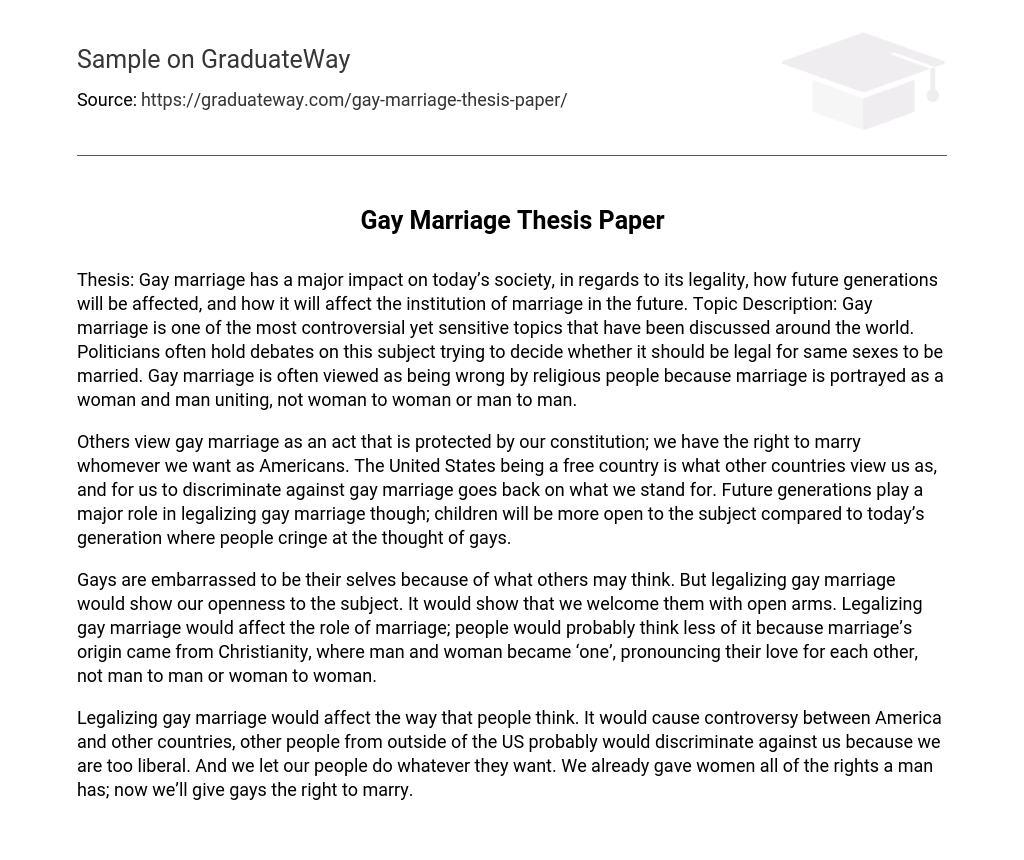Thesis: The social effects of legalizing gay marriage are significant, including considerations of its legality, implications for future generations, and impact on the institution of marriage.
Topic Description: Gay marriage is a highly debated issue that has sparked global conversations. Politicians often engage in discussions about whether same-sex marriages should be permitted. Opponents commonly use religious beliefs as an argument, asserting that marriage should only involve opposite-sex individuals.
There is an argument that the constitution provides protection for gay marriage. It claims that as Americans, we have the freedom to marry anyone we desire. This viewpoint suggests that denying same-sex marriage contradicts our core values and goes against what many countries see in us as a symbol of freedom. However, the acceptance of same-sex marriage largely depends on future generations. Younger individuals tend to be more open-minded towards this idea compared to today’s generation, which often has a negative response towards same-sex relationships.
Gays may experience feelings of self-consciousness about their identity because they are afraid of being judged. If gay marriage is legalized, it would show acceptance and a complete embrace of this issue. Furthermore, it would also have an impact on the institution of marriage itself. Some people might see it as less meaningful because traditionally, marriage represented the union between a man and a woman expressing their love in Christianity, rather than between individuals of the same gender.
The legalization of gay marriage would impact people’s perspectives and stir controversy between America and other nations. Individuals from foreign countries may likely discriminate against us due to our liberal attitudes and the freedom we grant our citizens. We have already granted women equal rights as men, and now we are extending marriage rights to the LGBTQ+ community.





